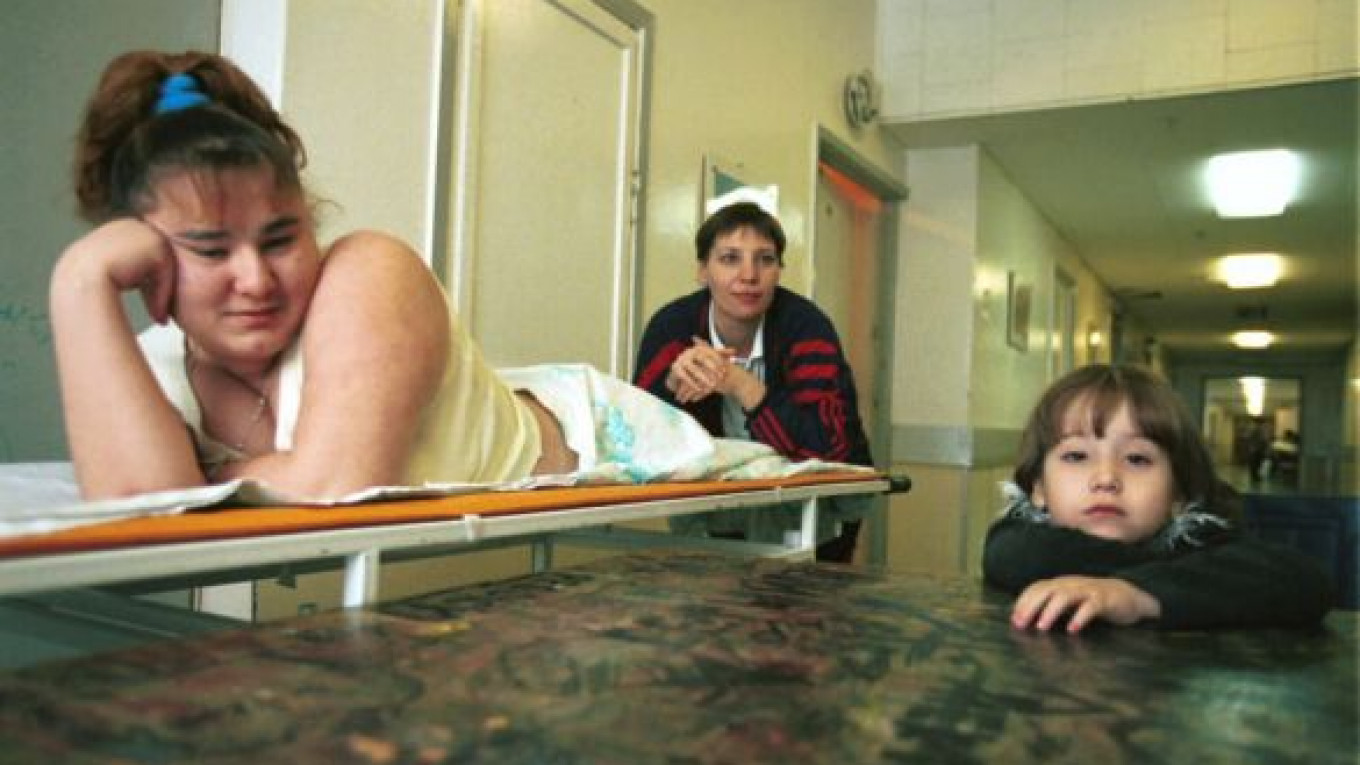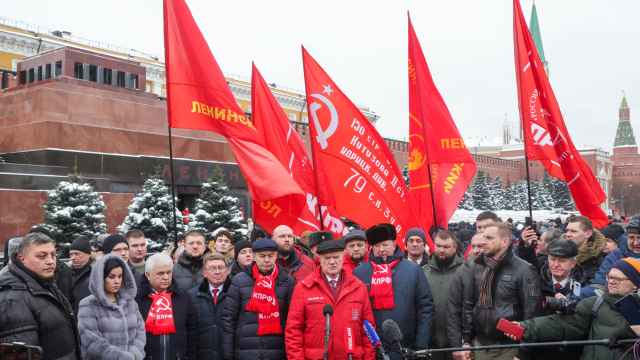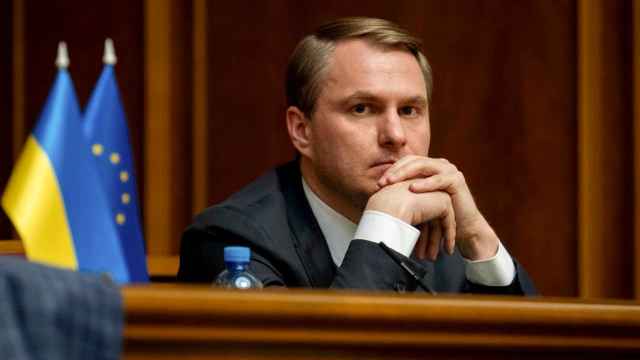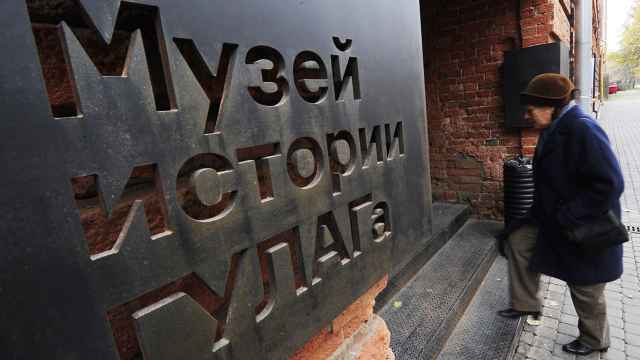About 15 years ago, I attended a little party in a hospital in the south of Moscow. A German builder had, at his own cost, renovated a children's ward, and we were invited to meet the children and drink a glass of sparkling wine to celebrate. Not long ago, I tracked down the three girls I met that day to see what had happened to them.
This was not any ordinary ward. It was dedicated to caring for children with the most severe physical injuries. Most of the kids were in wheelchairs either because of birth defects, or in Evelina Matveyeva's case, because she had been shot through the spine.
The first Chechen war was raging at the time. Evelina was 11 years old and living in Grozny, the Chechen capital. In January 1995, she decided to go down the road to visit a friend when a firefight between federal forces and Chechen rebels swept over her. A stray bullet entered her chest, passed through her torso and exited through her back, smashing her lower spine in the process.
An innocent victim, Evelina says she was relatively lucky because federal soldiers immediately whisked her away by helicopter to the hospital in nearby Mozdok, where doctors spent the next two days fighting for her life. When she was out of immediate danger, she and her mother were flown to Moscow to the specialist hospital where I met her.
The long process of rehabilitation began 16 years ago but will never end because she has lost control over the bottom half of her body and will live the rest of her life in a wheelchair.
Today, Evelina lives in a ground-floor apartment in the Butovo microdistrict just outside the Moscow Ring Road and has been pretty lucky all things considered. Evelina and her mother had to camp out in the hospital for months when they first arrived, and they can't move back to Grozny simply because Moscow is the only place in Russia where Evelina can receive the treatment she still needs.
"If you go 100 kilometers outside this city, there is nothing for people like me," says Evelina, lying on her belly in bed. The family's worst problem — accommodation — was solved by Iosef Kobzon, a Soviet-era crooner and State Duma deputy who donated $20,000 toward the cost of their apartment.
Russian law demands that local authorities provide wheelchair access at public or apartment buildings to those who need it, but Evelina's mother ended up badgering the neighbors into building a rough concrete ramp over the steps that allows Evelina to come and go on her own.
Things are more difficult for Anna Tukbayeva, a few years younger than Evelina, who finished school last year and was born with leg problems that left her permanently crippled. Anna lives on the 15th floor of an apartment block with no wheelchair access at all.
Now that Anna is an adult of 18, her mother is no longer able to wrestle her wheelchair up the boards they keep in the entrance hall to get to the elevator, and as a result Anna goes out rarely. Anna and Evelina were in the children's ward together, but even though they now live only a 20-minute drive apart, they have not seen each for more than a year.
Life is livable for the Matveyevas. Evelina's mother, Samantha, has a pension that covers the basics (and was increased by 50 percent by Prime Minister Vladimir Putin at the start of this year). Her brother works as a masseuse at the health center where Evelina is treated, and her little sister is just finishing school.
"Things are much better today than they were five years ago, but it is still very difficult," says Evelina, who completed a photography course at a Moscow institute and earns some money on the side making portraits for friends and family. Her pictures adorn her room. "All the new malls and big shopping centers that they are building now have to have wheelchair access, but nothing that was built before does."
Still money is tight. Samantha's pension of 10,000 rubles a month ($333) covers living costs but not medicine; the Russian Constitution, in a throwback to the Soviet workers' paradise ideal, says the state should provide any medicine any citizen needs.
"But when I go to the state-run pharmacy, they just say, 'We don't have that medicine,'" Samantha said. "These bureaucrats just pass papers to one another, and we have to buy the medicine from the pharmacy.
Samantha is clearly frustrated by the lack of state help. She has also tried to apply for compensation as an innocent victim of military action, but since the Chechen conflict was never classified as a war, only "anti-terrorist operations," the family is not eligible for state assistance.
"We lost everything, and we are lucky to have this much now," Samantha said.
The state has been so busy dealing with the immediate problems of the general population in the aftermath of the Soviet collapse that the severely disabled were largely forgotten. Before becoming president in 2008, Dmitry Medvedev was in charge of revamping Russia's health system and began a series of major investments. But, more recently, the emphasis has changed to halting the decline of the population, and most of the effort is going into maternity care and battling drug and alcohol addiction.
Long-standing prejudice doesn't help either. Disabled rights groups have long campaigned in the West for equal rights, but in Russia there is a simple distinction between the able-bodied and ***invalidi.***
"In the West if your legs don't work you are considered to be a person whose legs don't work but you are still a person," Evelina said. "But here you are just ***balnoi"*** — sick — "and can't do anything."
Evelina also has a job at the same rehabilitation clinic as her brother but earns half as much as him, 15,000 rubles a month. Getting a regular job is next to impossible for those in wheelchairs because discrimination is widespread, she said.
Still, attitudes are starting to change slowly. Evelina's best friend, Yulia Bessonova, who I also met that day at the hospital ward party, has defied all difficulties and gotten both an education and a job.
Yulia, who also uses a wheelchair, put herself through college, qualifying as an English teacher. She found a job at a school with an elevator, so she can get to her classroom, she said by phone. (She was suffering from a regular bout of sickness related to her condition and could not come to our informal reunion.)
Both Evelina and Yulia have scrimped together enough money to buy cars that they have converted to hands-only control. Both clearly adore their cars, which give them the freedom to move around the city.
The other key piece of the kit for a Moscow paraplegic is a laptop with an Internet connection, without which their education would have been impossible. Anna finished school last summer but did almost all her lessons and exams online.
"I want to study psychology, and there is an institute in Moscow that offers a distance-learning course where I have a place," Anna said. "But what I would really like to do is study law. The trouble is there are no distance-learning courses in Moscow; there are in other cities but not here."
Evelina remains optimistic, and her deep voice booms as she rails against the idiocy of the bureaucracy that for her is more than just the annoyance that it is for fellow Muscovites. But she says she has a car and a job and there plenty of things that she can do based around the telephone and an Internet-enabled computer.
"I have to bide my time and see what comes up," she said. "Really it is up to other people to realize that you can be productive and work even if you are an invalid."
A Message from The Moscow Times:
Dear readers,
We are facing unprecedented challenges. Russia's Prosecutor General's Office has designated The Moscow Times as an "undesirable" organization, criminalizing our work and putting our staff at risk of prosecution. This follows our earlier unjust labeling as a "foreign agent."
These actions are direct attempts to silence independent journalism in Russia. The authorities claim our work "discredits the decisions of the Russian leadership." We see things differently: we strive to provide accurate, unbiased reporting on Russia.
We, the journalists of The Moscow Times, refuse to be silenced. But to continue our work, we need your help.
Your support, no matter how small, makes a world of difference. If you can, please support us monthly starting from just $2. It's quick to set up, and every contribution makes a significant impact.
By supporting The Moscow Times, you're defending open, independent journalism in the face of repression. Thank you for standing with us.
Remind me later.







